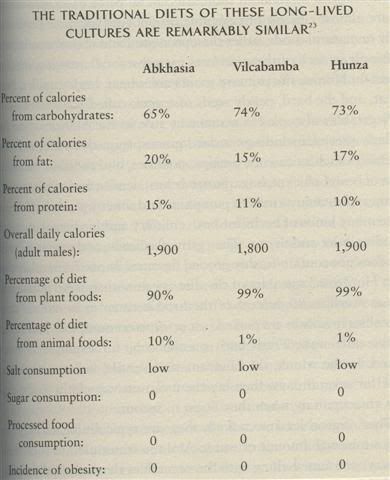If length of ancestral history epochs is to be the criterion, then our ancestors spent ten times longer eating uncooked meat than cooked meat, and ten times longer than that eating entirely other things, and so on, going back hundreds of millions of years. What aspects of metabolism have been conserved over the course of evolution can only be determined by present-day observation and measurement, not length of the period over which an adaption occurred. As an extreme example, the high incidence of hypertension among African Americans is believed to have evolved over only one generation because of the extreme circumstances of their ancestors' migration. An ancestry of 800,000 years as hunter-gathers and recent ancestry of 8000 years as agrarians in no way implies that metabolism will be better adapted to a hunter-gather diet (bearing in mind that what is "better" to evolution may not be what we want anyway). The high incidence of obesity and diabetes in people with little or no agrarian ancestry living in developed societies already tells us that the influence of agriculture on human evolution has been profound.Dr. Wowk, the argument paleo dieters use is that homo sapiens lived as hunter gatherers for at least an order of magnitude longer than they have lived as grain eaters, and thus evolved longer under those conditions.
Yes, the CR response has been confirmed *by testing* as conserved over many species, hence long evolutionary time. It seems to be something even more fundamental than diet since the difference in dietary composition of animals that exhibit the response is vast. It may be something as old and fundamental as the use of glucose itself as an energy transporter.I have no doubt there has been some adaptation since then (some that might even confer more longevity) however, the basic metabolic processes are conserved across species and thus must be of some importance. Example: life extension through CR is similar through most organisms that have been tested. Intermittent fasting has also been shown to increase health parameters in many species.
If despite agrarian ancestry we still have some metabolic adaptations that evolved during paleolithic times (or earlier) that make aspects of paleolithic diets favorable for longevity in the modern world, then we should certainly recognize that. However the presence of such adaptations can only be determined from observations of the present state of the human body. It does not follow a priori from evolutionary theory that because our distant ancestors ate in a certain way that eating that way maximizes our longevity. That's all I'm saying.




















































